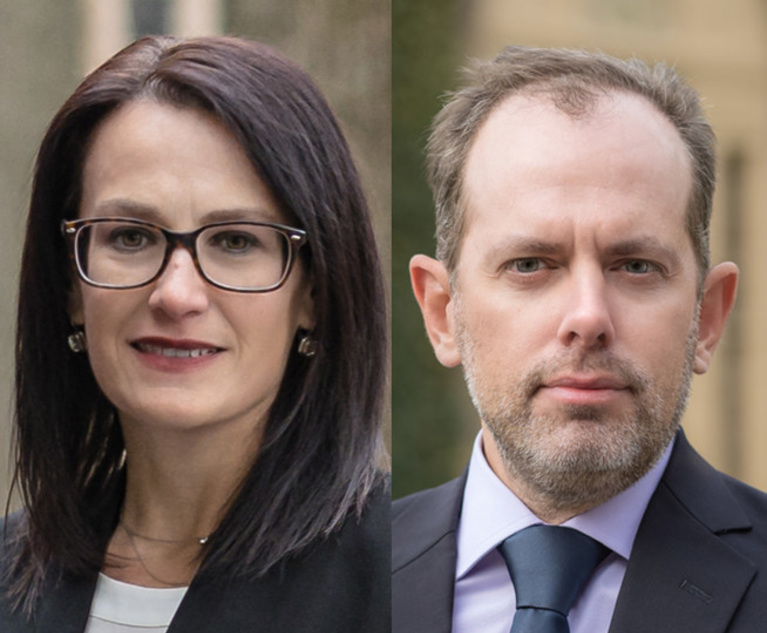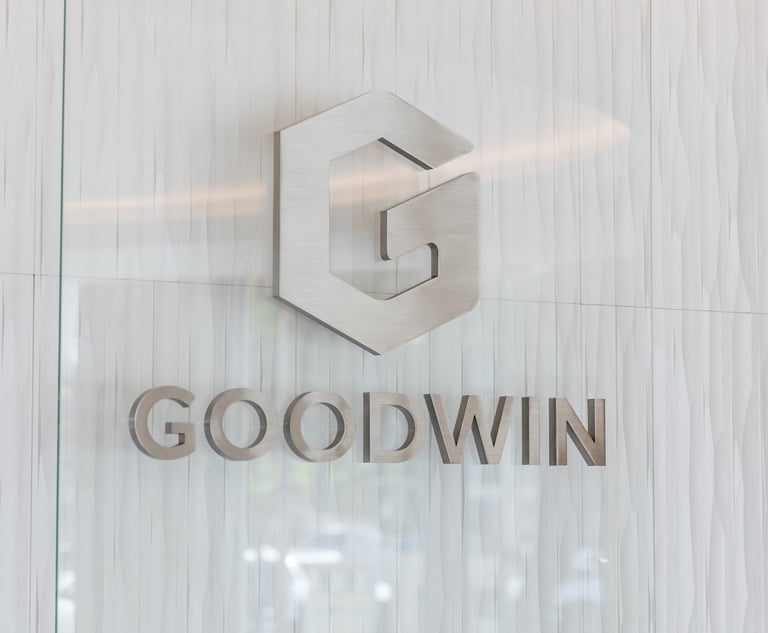 Rebecca L. Rakoski, left, and Patrick D. Isbill, right, Co-Founders and Managing Partners at XPAN Law Partners. Courtesy photos
Rebecca L. Rakoski, left, and Patrick D. Isbill, right, Co-Founders and Managing Partners at XPAN Law Partners. Courtesy photos AI's Learning Curve Clashes With Proprietary Data: Processing Originality Raises Legal, Ethical Questions
AI is racing to process all of this individual creative work, and yet using this type of technology could also put it on a fast-track collision course with copyright infringement and intellectual property laws.
March 14, 2023 at 01:06 PM
9 minute read
Originality is often talked about but difficult to attain. An equation that adds effort and time with patience attempting to battle any final calculation. The marketing of new artificial intelligence (AI) learning technologies promises a spectacular increase in productivity, challenging the limiting factors of effort and time, but perhaps also with a cost to human creativity and innovation. News reports have again highlighted how AI is producing art by using algorithms to study, i.e., arguably copy to some legal analysts, the long-practiced techniques of thousands of artists in order to then generate art of its "own." Fundamentally, AI is racing to process all of this individual creative work, and yet using this type of technology could also put it on a fast-track collision course with copyright infringement and intellectual property laws.
These large reams of data, whether it be the styles of different artists, the unique voices of writers, the complex nuances of computer code, or even the scientific reasoning of researchers, are being processed at a stunning rate to essentially achieve what could conceivably be termed synthesized productivity and ultimately one might argue synthesized creativity. No longer a wholly human construct but rather manufactured and then authenticated by a machine, or at least a fenced in or potentially undisciplined notion of what that means to the artificial intelligence. In short, synthesizing data to deliberately produce a result may someday altogether alter the definition of what is now understood to be authentic and previously uncharted human innovation.
This content has been archived. It is available through our partners, LexisNexis® and Bloomberg Law.
To view this content, please continue to their sites.
Not a Lexis Subscriber?
Subscribe Now
Not a Bloomberg Law Subscriber?
Subscribe Now
NOT FOR REPRINT
© 2025 ALM Global, LLC, All Rights Reserved. Request academic re-use from www.copyright.com. All other uses, submit a request to [email protected]. For more information visit Asset & Logo Licensing.
You Might Like
View All
Testing The Limits of “I Agree”: Court of Appeals Examines Clickwrap Arbitration Agreements
13 minute read
Change on the Horizon?: 2025 Begins With Numerous Patent Bills Pending
8 minute read

IP at the Frontier of AI: Navigating the New Landscape
Trending Stories
Who Got The Work
J. Brugh Lower of Gibbons has entered an appearance for industrial equipment supplier Devco Corporation in a pending trademark infringement lawsuit. The suit, accusing the defendant of selling knock-off Graco products, was filed Dec. 18 in New Jersey District Court by Rivkin Radler on behalf of Graco Inc. and Graco Minnesota. The case, assigned to U.S. District Judge Zahid N. Quraishi, is 3:24-cv-11294, Graco Inc. et al v. Devco Corporation.
Who Got The Work
Rebecca Maller-Stein and Kent A. Yalowitz of Arnold & Porter Kaye Scholer have entered their appearances for Hanaco Venture Capital and its executives, Lior Prosor and David Frankel, in a pending securities lawsuit. The action, filed on Dec. 24 in New York Southern District Court by Zell, Aron & Co. on behalf of Goldeneye Advisors, accuses the defendants of negligently and fraudulently managing the plaintiff's $1 million investment. The case, assigned to U.S. District Judge Vernon S. Broderick, is 1:24-cv-09918, Goldeneye Advisors, LLC v. Hanaco Venture Capital, Ltd. et al.
Who Got The Work
Attorneys from A&O Shearman has stepped in as defense counsel for Toronto-Dominion Bank and other defendants in a pending securities class action. The suit, filed Dec. 11 in New York Southern District Court by Bleichmar Fonti & Auld, accuses the defendants of concealing the bank's 'pervasive' deficiencies in regards to its compliance with the Bank Secrecy Act and the quality of its anti-money laundering controls. The case, assigned to U.S. District Judge Arun Subramanian, is 1:24-cv-09445, Gonzalez v. The Toronto-Dominion Bank et al.
Who Got The Work
Crown Castle International, a Pennsylvania company providing shared communications infrastructure, has turned to Luke D. Wolf of Gordon Rees Scully Mansukhani to fend off a pending breach-of-contract lawsuit. The court action, filed Nov. 25 in Michigan Eastern District Court by Hooper Hathaway PC on behalf of The Town Residences LLC, accuses Crown Castle of failing to transfer approximately $30,000 in utility payments from T-Mobile in breach of a roof-top lease and assignment agreement. The case, assigned to U.S. District Judge Susan K. Declercq, is 2:24-cv-13131, The Town Residences LLC v. T-Mobile US, Inc. et al.
Who Got The Work
Wilfred P. Coronato and Daniel M. Schwartz of McCarter & English have stepped in as defense counsel to Electrolux Home Products Inc. in a pending product liability lawsuit. The court action, filed Nov. 26 in New York Eastern District Court by Poulos Lopiccolo PC and Nagel Rice LLP on behalf of David Stern, alleges that the defendant's refrigerators’ drawers and shelving repeatedly break and fall apart within months after purchase. The case, assigned to U.S. District Judge Joan M. Azrack, is 2:24-cv-08204, Stern v. Electrolux Home Products, Inc.
Featured Firms
Law Offices of Gary Martin Hays & Associates, P.C.
(470) 294-1674
Law Offices of Mark E. Salomone
(857) 444-6468
Smith & Hassler
(713) 739-1250






